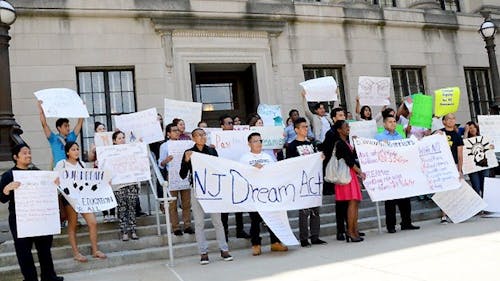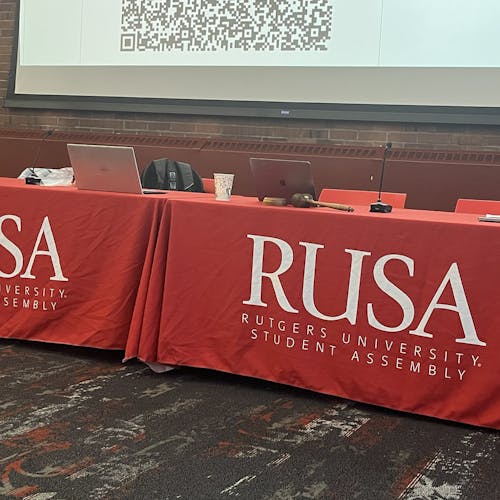Rutgers hosts event for undocumented students

For Leslie Hoyos, it came as a shock when a friend disclosed he had no plans to attend college.
He wanted the better job prospects that come with a higher degree, Hoyos said, but faced roadblocks as an undocumented immigrant.
"I was so confused because he is so intelligent and had some of the highest marks in school," said Hoyos, president of UndocuRutgers, a group that lends a hand to the school's undocumented population.
And on Saturday, the University hosted "undocuRutgers," a three-and-a-half hour fair on Douglass campus. The event drew a crowd of more than 350 people and included tabling from Rutgers student organizations and two-year community colleges.
The fair aimed to help undocumented immigrants take advantage of the New Jersey Dream Act. New Jersey Gov. Chris Christie signed the piece of legislation in 2013, allowing the children of undocumented immigrants to pay in-state tuition at public colleges in the Garden State.
Many undocumented immigrants are unsure how to apply and pay for college, but want to pursue higher education, said Patricia Rodriguez, an organizer of undocuRutgers. The fair, which was split into presentations on admissions, financial aid and recent federal immigration policy changes, taught students without social security numbers how to fill out college application.
“If you’re undocumented, you don’t have a (SSN). You have to go through loops and loops to get to the point where you can apply," Rodriguez said.
Even students born in America can struggle filling out university forms if their undocumented parents do not have social security numbers.
Still, Rodriguez said finding a way to pay for higher education is often more difficult than the application process. In New Jersey, undocumented students are not eligible for federal education grants or loans.
"Undocumented students can compete academically with naturalized students and citizens," Hoyos said. "The issue is paying for college as the prices keep rising and attending college is more expensive than ever."
The final presentation gave information on how to apply for two lesser-known national programs called the Deferred Action for Childhood Arrivals (DACA) and the Deferred Action for Parents of Americans and Lawful Permanent Residents (DAPA).
The two programs are federal changes President Obama recently made to federal immigration policy.
The Deferred Action for Childhood Arrival (DACA) program grants temporary permission to stay in the United States, called "deferred action." DACA, which applies to children who came to the United States before age 16, prevents the person from being deported for two years.
DAPA follows the same logic, but is geared toward . To apply for DAPA, the undocumented immigrant must have a child who is a United States citizen and must have lived in the U.S. since Jan. 1, 2010.
"(The person would receive) a temporary social security number so you can apply for things," she said. "You can go to school, you can get a visa, you can get a license to work, you can get a lot of stuff you can’t get just being undocumented."
But an expanded DACA program and DAPA has been temporarily blocked by a federal district court in Texas.
According to the National Immigration Law Center, this means people will not be able to apply for DAPA or DACA until a court issues an order allowing the initiatives to go forward. The original 2012 DACA program is still accepting applications.
"(DAPA) hasn’t gone into effect yet, it is being challenged in Texas. There are still some unknowns," Rodriguez said.
The two programs are expected to help up to 4.4 million people, according to Department of Homeland Security statistics.
Last semester, Rutgers held the same "undocuRutgers" event on its Newark campus. According to NJ Advance Media, there were fears that protestors would disrupt the event in Newark, and the University heightened police security as a result.
This year at Rutgers—New Brunswick, Rodriguez said she also had worries.
"I was a little bit worried," Rodriguez said. "Trump is leading in the polls, anything can happen. But I was proved wrong and no one showed up to protest."
Editor's Note: A previous version said the Deferred Action for Childhood Arrival (DACA) program has been temporarily blocked by a Texas federal district court. The 2014 expanded DACA program is blocked, but the original 2012 version is still accepting applications.



